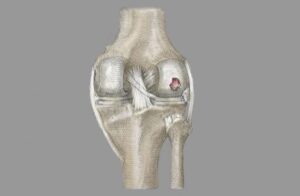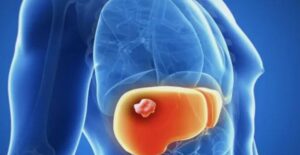Medical technology has been rapidly advancing, revolutionizing the healthcare industry and transforming the way medical professionals deliver care. From sophisticated imaging devices to robotic surgical systems, technology has become an integral part of modern medicine. This article explores the evolving role of medical technology in healthcare and its implications for physicians. As technology continues to advance, it is crucial for physicians to adapt and harness its potential to enhance patient outcomes and improve healthcare delivery.
Role of Medical Technology in Healthcare
The role of medical technology in healthcare is pivotal in shaping the future of patient care. From advanced diagnostic tools and telemedicine to electronic health records and robotic-assisted surgeries, medical technology plays a crucial role in enhancing accuracy, efficiency, and patient outcomes.
Enhanced Diagnosis and Treatment
Advancements in medical technology have greatly enhanced the accuracy and efficiency of diagnosis and treatment. Cutting-edge imaging technologies, such as magnetic resonance imaging (MRI) and computed tomography (CT), provide detailed anatomical images, enabling physicians to detect and diagnose conditions with greater precision. This allows for timely interventions and improved patient outcomes.
Furthermore, technological innovations have led to the development of minimally invasive surgical procedures. Robotic surgical systems, for instance, enable surgeons to perform complex surgeries with greater precision and control. These advancements reduce patient trauma, minimize recovery time, and enhance surgical outcomes.
Streamlined Data Management and Analysis
The digital revolution has transformed the way healthcare data is managed and analyzed. Electronic Health Records (EHRs) have replaced paper-based systems, enabling physicians to access patient information easily and securely. EHRs not only streamline data management but also facilitate information sharing among healthcare providers, leading to improved care coordination.
Additionally, medical technology has given rise to sophisticated data analytics tools that can mine large datasets to identify patterns, trends, and potential treatment options. Artificial intelligence (AI) algorithms can analyze patient data, medical literature, and clinical guidelines to provide evidence-based treatment recommendations. Physicians can leverage these tools to make more informed decisions, enhancing patient care and safety.
Remote Patient Monitoring and Telemedicine
Medical technology has played a pivotal role in the growth of remote patient monitoring and telemedicine. Connected devices, such as wearable sensors and mobile applications, enable physicians to monitor patients’ vital signs, activity levels, and medication adherence remotely. This real-time data allows for early detection of health deterioration and facilitates timely interventions.
Telemedicine, on the other hand, leverages video conferencing and telecommunication technologies to facilitate remote consultations. This approach eliminates geographical barriers, enabling physicians to reach patients in rural or underserved areas. Telemedicine improves access to care, enhances patient convenience, and reduces healthcare costs.
Improved Patient Engagement and Education
Technology has empowered patients to take a more active role in their healthcare journey. Patient portals and mobile applications provide individuals with access to their health records, appointment scheduling, medication reminders, and educational resources. Patients can engage in self-care, track their progress, and communicate with their healthcare providers more effectively.
Moreover, technology enables physicians to deliver personalized health education to patients. Digital platforms can deliver targeted educational content, tailored to patients’ specific needs and conditions. This fosters better patient understanding, adherence to treatment plans, and overall health outcomes.
Also Read:
- Eligibility verification challenges and solutions
- How to Optimize insurance eligibility verification process
Ethical Considerations and Challenges
As medical technology continues to advance, physicians face ethical considerations and challenges. One such concern is the potential depersonalization of patient care. The increased reliance on technology may inadvertently diminish the human connection between physicians and patients. It is crucial for healthcare providers to strike a balance between technology-driven care and compassionate, patient-centered interactions.
Additionally, the rapid pace of technological innovation requires physicians to continually update their knowledge and skills. Continuous professional development and education are essential to ensure physicians can effectively and ethically utilize the latest medical technologies.
Precision Medicine and Genomics
The field of genomics has experienced remarkable advancements in recent years, leading to the emergence of precision medicine. Through genetic testing and analysis, physicians can identify individuals at a higher risk for certain diseases and tailor treatment plans based on their genetic makeup. Medical technology plays a crucial role in facilitating genomic sequencing, interpretation of genetic data, and the development of targeted therapies. Physicians need to familiarize themselves with these advancements and collaborate with geneticists and genetic counselors to provide personalized care to patients.
Artificial Intelligence and Clinical Decision Support
Artificial intelligence (AI) has the potential to transform clinical decision-making and improve patient outcomes. AI algorithms can analyze vast amounts of data, including medical records, research papers, and patient data, to provide insights and recommendations for diagnosis and treatment. Clinical decision support systems powered by AI can assist physicians in making informed decisions by presenting evidence-based guidelines and identifying potential risks or adverse events. However, physicians must exercise caution and critically evaluate AI recommendations, ensuring that human judgment and expertise remain central to the decision-making process.
Conclusion
In conclusion, the evolving role of medical technology in healthcare has significant implications for physicians. Embracing technology enables more accurate diagnoses, personalized treatment plans, and real-time monitoring. Physicians must adapt, stay informed, and continually update their skills to leverage technology effectively. Ethical considerations and patient privacy must be maintained. Despite challenges, technology offers exciting opportunities for physicians to enhance care, engage patients, and improve outcomes. The partnership between physicians and technology is powerful, combining expertise with innovation to advance healthcare.









